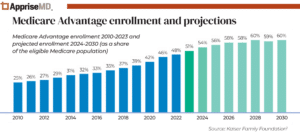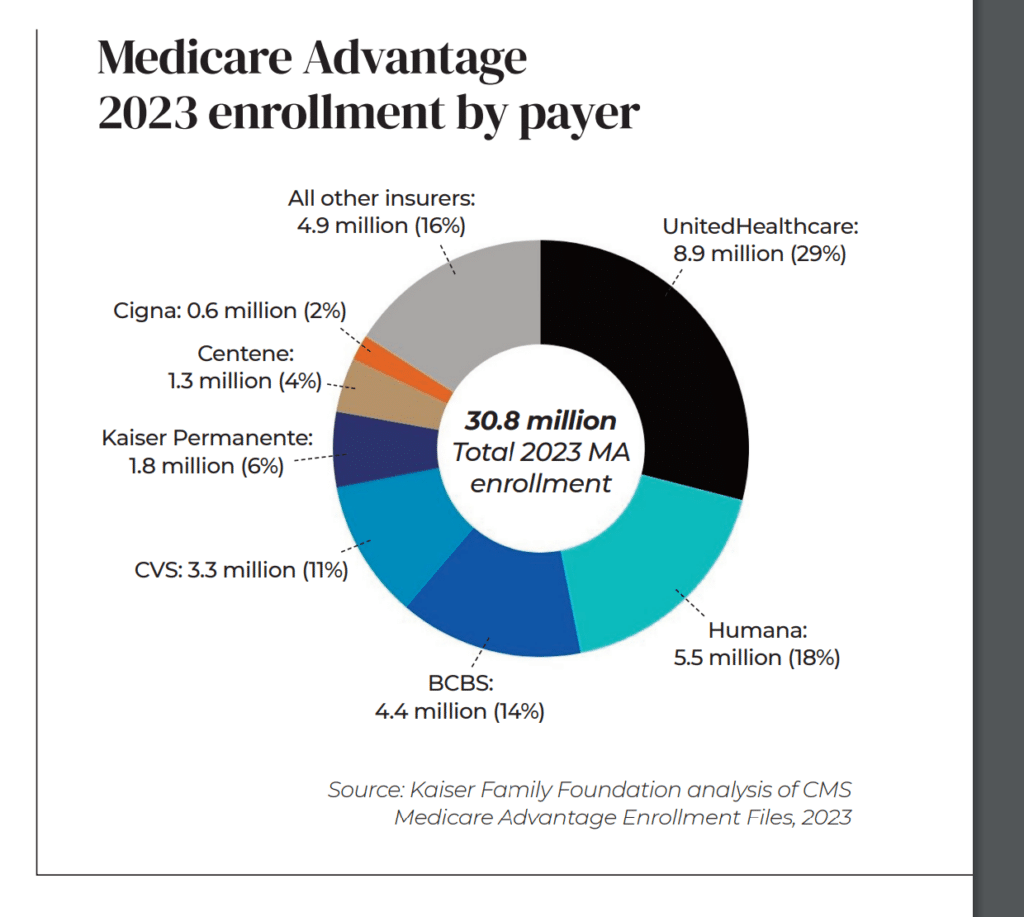Medicare Advantage (MA) plans traditionally implement more restrictive medical necessity requirements than Traditional Medicare. They also produce a higher denial rate than all other payer categories combined, according to Crowe. This leaves hospitals investing more time and resources into ensuring appropriate reimbursement. MA plans already account for a generous portion of Medicare plans in the US, and projections show that by the end of 2024 they will hold a 54% majority.

Claim denials in healthcare are not surprising and were recently addressed in a paper titled “The Use of AI in Claim Denials” published by
AppriseMD. Three recent class-action lawsuits filed against insurance companies – which the paper outlines – demonstrate the need for rigorous provider oversight to ensure payers are denying claims appropriately.
One of the class-action lawsuits alleges that two Medicare Advantage Organizations (MAOs) utilize an artificial intelligence tool to inappropriately deny Medicare Advantage (MA) plan enrollees’ medical claims. This directs a more intense spotlight on MA non-compliance with CMS-4201-F, which is further illuminated by the 2023 MA plan enrollment data published by the Kaiser Family Foundation. According to this data, MA enrollment exceeded 30 million people, which underscores just how broad the MAO market reach extends.
Read more:
The Use of AI in Claims Denials
Medicare Advantage and the Two-Midnight Rule: 2024 Findings

